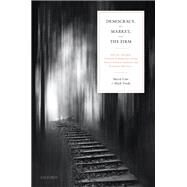Democracy, the Market, and the Firm How the Interplay between Trading and Voting Fosters Political Stability and Economic Efficiency
, by Crès, Hervé; Tvede, Mich- ISBN: 9780192894731 | 0192894730
- Cover: Hardcover
- Copyright: 9/29/2021
Why are collective choices so stable and easy to make in practice, when in theory it should be totally otherwise? This question has puzzled social scientists since Condorcet in the eighteenth century. A striking illustration of this puzzle is the almost unanimous support of shareholders in publicly traded companies to the motions tabled by directors. Democracy, the Market, and the Firm investigates the behavioural assumptions leading to an alignment of shareholders, even in a context of severe market failures, and provides an analysis of the philosophical and axiomatic underpinnings of these assumptions. In sum, and figuratively, Crès and Tvede argue that the invisible hand of the market and the active hand of democracy can work hand in hand to give rise to a better world. The first part of the book explores the interplay between the voting and trading mechanisms. Two main arguments are proposed: on the one hand, the better the market works, the easier it is for majority voting to achieve political stability; on the other hand, among all market equilibria, those that are politically stable are more likely to be economically efficient. The second part of the book explores the feedback from collective choices to individual preferences.







